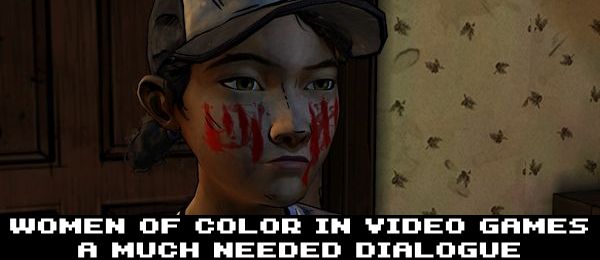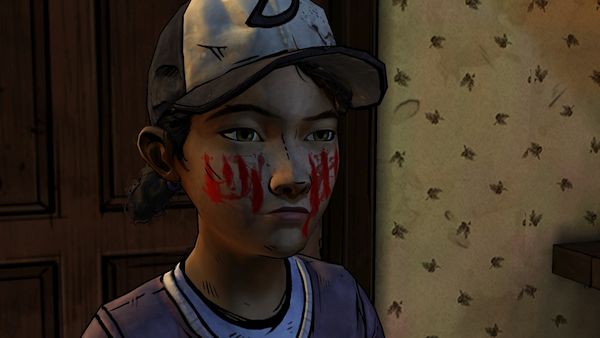
Have you ever heard of the “magical negro” trope? Perhaps you haven’t. How about the one regarding black women being “hypersexual?” No, haven’t heard of that trope either? Well, here’s the thing… you’ve definitely seen it, read it, digested it, but you might not have consciously absorbed it. Don’t feel too bad; most people don’t recognize it, either.
The fact that most people don’t see how offensive the portrayal of black and brown women in video games is, is exactly why commentary on this valid argument is so direly needed.
It’s no secret that women of all races are poorly represented in video games, and there’s been an increasing amount of dialogue around the issue. Said dialogue has expanded into action, and action has evolved into progress. Look no further than 2012’s Tomb Raider reboot for evidence. The once scantily clad and unrealistically proportioned Lara Croft is gone, instead replaced with a fully fleshed out woman with strengths, weakness, emotions, character progression, and a sensible wardrobe.

Or take The Walking Dead’s Clementine, a young woman of color who is strong, assertive, and interesting, all without having to resort to some tired racial or gender specific stereotype. Without a doubt, that is progress. However, still looking at Clementine as a source of evidence, what do we really know about her culturally? Now, perhaps I missed something throughout my playthroughs of Telltale’s The Walking Dead games, but I don’t recall there ever being any placement of significance on Clementine’s cultural identity.
As much as we as a society like to say that we’re all one and that we shouldn’t let things such as race or cultural identity affect us, the truth of the matter is that our race and cultural identity is a large component of who we are.
In anthropological studies, it is taught that a person’s identity is largely in part formed by their culture. Culture can be defined as a “way of life for a particular people.” Other definitions have described culture as “shared attitudes, values, goals, and practice.” Culture can encompass anything from religious beliefs to recognized holidays. The fact of the matter is, different racial groups experience life differently, originate from different places, and believe different things. Of course, cultural diversity isn’t simply defined by race alone, but also national origin, as well as many other factors. However, for the sake of this article, right now we will focus on race.
What actually qualifies someone to analyze our favorite hobby? As part of the latest Tropes Vs Women in Video Games episode, Anita Sarkeesian brings up an excellent point about the way that women of color are often portrayed in video games – provocative, promiscuous, mythical, and a few other stereotypes that she failed to mention.
Women have it bad enough in video games and other forms of media, but women of color are handled in a way that is… shameful. Take, for example, the tribal markings and attire showcased in the above video. Did the people who created these games actually think their choices completely through? Did they accurately portray these women or their cultures? Did they even specifically and correctly define their cultures? Africa has 54 countries, close to 2,000 languages, and 3,000 tribes – so if you asked the developers of Resident Evil 5 which culture Sheva Alomar is supposed to represent in her special, unlockable attire, could they even tell you?
Anthropological studies teaches us that in order to understand a person, you must interact with them, speak with them, and engage with them. The video game industry is predominately composed of white males, so is it that inconceivable that many of them struggle with accurately portraying women of color and instead revert to lazy and offensive stereotypes? Is it that hard to believe that, instead of actually putting in the necessary research required in order to effectively develop and write for a woman of color character, they generalize and use tropes that are historically steeped in racism and misogyny?
 Developers need to be aware of the fact that by pushing tropes such as the “hypersexual *insert minority* woman” or the “magical negro,” they are further pushing the formation of subconscious racial bias. As Sarkeesian points out in the above video, the myth of hypersexuality amongst black women is a stereotype originating from slavery that still affects women of color to this day. Just look at any online forum dealing with government services such as welfare and you’ll find countless hateful comments spouting bigoted and false tales of how black women and their alleged promiscuous nature has resulted in the national debt – never mind that working class whites are the biggest benefactors of such services.
Developers need to be aware of the fact that by pushing tropes such as the “hypersexual *insert minority* woman” or the “magical negro,” they are further pushing the formation of subconscious racial bias. As Sarkeesian points out in the above video, the myth of hypersexuality amongst black women is a stereotype originating from slavery that still affects women of color to this day. Just look at any online forum dealing with government services such as welfare and you’ll find countless hateful comments spouting bigoted and false tales of how black women and their alleged promiscuous nature has resulted in the national debt – never mind that working class whites are the biggest benefactors of such services.
Or take the “magical negro” trope – a term coined by director Spike Lee – that is more often than not used to show blacks in an acceptable but subordinate position in comparison to whites while simultaneously dehumanizing people of color and bastardizing their wide range of spiritual practices.
It might seem asinine to believe that such a trope might actually affect the way that people of color are viewed, but truth be told, there are people who honestly believe that people of color – of African descent specifically – possess some strange form of spiritual intuitivism that other races lack. It lumps us into a box that we don’t all fit into. I mean, why else do you think the current President sought out the approval of black pastors instead of pursuing the approval of black intellectuals and business leaders – which arguably would have been far more effective?
Foolishness perpetuated for the sake of entertainment is still foolishness, but the demeaning stereotypes often attributed to women of color are all the more hurtful and counterproductive to our society. They lend credence to unconscious biases that we all have. They allow others to shamelessly justify the hostility and misogyny often directed towards women of color within the gaming community (I’ve been called every kind of “N Word” and bitch under the sun just for daring to play the same games as a white male).
Recognizing these tropes and acknowledging their destructive nature should not illicit such violent rebuttal that often accompanies just mentioning them. If anything, as a society, we should be working to eliminate them. Inclusivity and better storytelling makes for a more pleasant experience for all of us.

I don’t mind playing as a white, brown-haired, brown-eyed protagonist (the typical video game lead). Heck, even when presented with the option to play as a custom player in single-player games, I often still choose to play as a male, modeling those characters after my sons. But I’d be lying if I said that the games I relate to the most aren’t games that I could relate to on an aesthetic and cultural basis.
 I loved Beyond: Two Souls despite all of its faults, because I could relate to Jodie’s character. Lara Croft is definitely in the top five of my list of “most inspirational women.” And the most enjoyable video game experience I’ve had in the past year was Telltale’s The Walking Dead: Michonne, not just because she’s my favorite fictional woman in any form of media, but because she was real, relatable, and accurate.
I loved Beyond: Two Souls despite all of its faults, because I could relate to Jodie’s character. Lara Croft is definitely in the top five of my list of “most inspirational women.” And the most enjoyable video game experience I’ve had in the past year was Telltale’s The Walking Dead: Michonne, not just because she’s my favorite fictional woman in any form of media, but because she was real, relatable, and accurate.
This is a conversation needs to be had, and we need to keep having it until things begin to change. According to Pew Research, about 48% of women are gamers these days, and as the makeup of the gaming community evolves, so should the narratives of the games we love. Video games have proven to be beneficial in so many ways, and I truly believe that if we address these issues and make the necessary modifications, we can bridge our communities, build a better understanding of one another, and change this world for the better.






